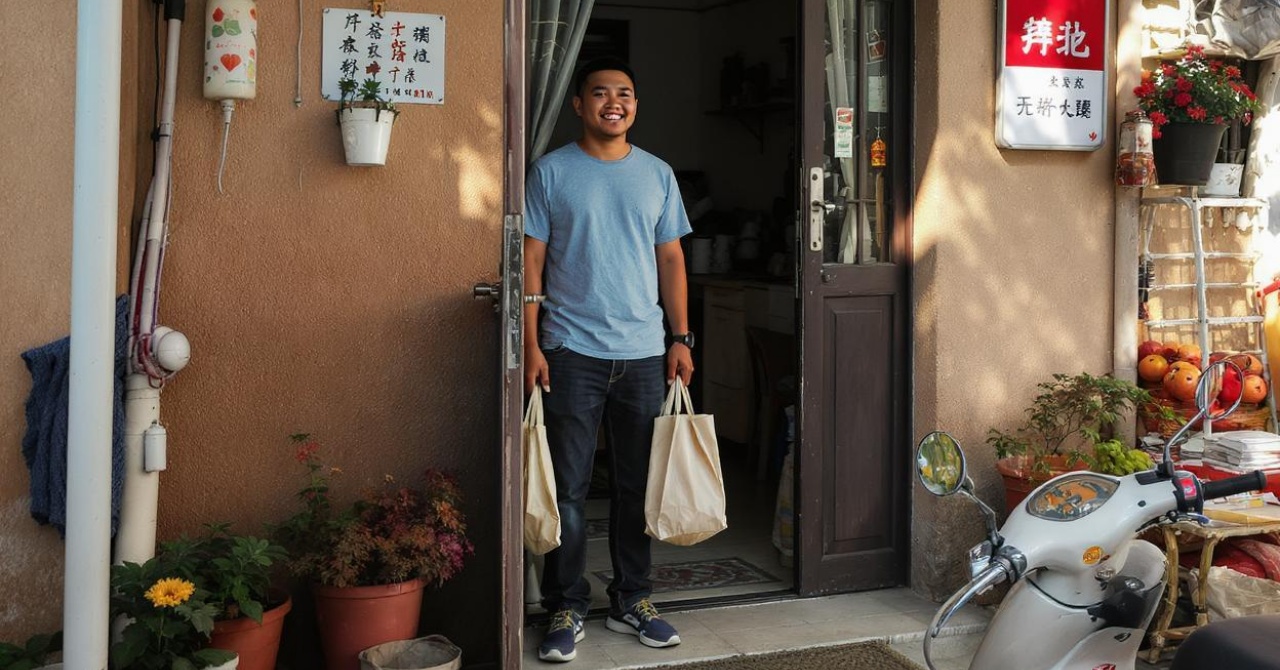When I first moved to Taiwan, akala ko simple lang ang grocery—bilhin mo lang ‘yung kailangan mo, tapos na. But after a few months, I started to notice: Bakit parang ubos na agad ang sahod ko kahit parang konti lang ang pinamili ko?
That’s when I realized, grocery shopping here needs strategy. After living in Taiwan for several years, I’ve picked up some smart habits to save money while still enjoying good food. These are tips I wish I knew earlier—and now I’m sharing them with you.

Set a Monthly Grocery Budget (And Stick to It)
Most OFWs I know (myself included) spend around 30–35% of their salary on food. So if you’re earning around NT$28,590, try to keep your food and grocery spending between NT$8,500 to NT$10,000.
I use a simple notebook or Google Sheets to write down what I buy every week. Tracking your expenses helps you adjust before things go overboard.
Plan Your Weekly Meals Before Shopping
Meal planning changed everything for me. Instead of guessing at the store, I now plan my meals ahead:
- Breakfast: Steamed buns (mantou), soy milk
- Lunch: Stir-fried kangkong with rice and egg
- Dinner: Tofu and veggies or pork belly with garlic
- Snacks: Boiled sweet potatoes, bananas, or rice crackers
When you plan ahead, you buy only what you need, avoid spoilage, and spend less.
Check Your Ref and Cabinet First
Minsan, bumibili ako ng toyo o sibuyas na meron na pala sa bahay. Nakakainis pero lesson learned: always check your pantry and fridge before you shop. Sayang ang pera sa doble-dobleng items.
Make a Clear Shopping List—With Two Sections
I divide my list into:
- Essentials: Rice, eggs, oil, tofu, cabbage, carrots
- Treats (Limit to 1–2): Milk tea, mochi, or spicy snacks
May konting “reward” sa dulo, pero dapat clear kung ano talaga ang kailangan. This keeps your budget on track while still letting you enjoy a little treat now and then.
Shop Alone If You Can
Kung may kasama ka, lalo na kapag pareho kayong pagod at gutom, ang daming “Uy, bili tayo nito!” moments. Believe me, I’ve been there.
When I shop solo, I’m faster, focused, and I stick to the list. No pressure, no extra spending.
Don’t Go Grocery Shopping Hungry
This one’s simple but powerful. I make sure to eat a small snack—like bread or a banana—before shopping. Kasi pag-gutom ka, halos lahat ng ready-to-eat meals or chips sa shelf parang “must-buy.” Avoid that. You’ll save a lot just by shopping on a full stomach.
Compare Prices and Buy in Bulk When It Makes Sense
Here in Taiwan, prices can really vary depending on where you shop. My tip?
- Wet markets (especially morning ones) often sell fresher and cheaper gulay and meat
- PX Mart or Simple Mart is great for basic items—watch out for promotions
- Buy in bulk if you use the item a lot (like rice, dish soap, frozen dumplings)
You can even split big packs with a roommate or kababayan para mas tipid.
Extra Tips to Save More (From One OFW to Another)
- Join local OFW group chats. Marami sa atin ang nag-oorganize ng bulk buying or sale alerts
- Use e-wallets like LINE Pay or PX Mart points. You can earn cashback or discounts
- Eat with the seasons. Local veggies like cabbage, green onions, and spinach are cheaper in season
- Prep meals once a week. It saves time and reduces the chance of spoilage
- Log your weekly grocery spend. You’ll spot where your money really goes
Frequently Asked Questions
Q: How much should I spend on groceries per month?
If you earn around NT$28,590 (minimum wage), aim for NT$8,500–NT$10,000. Track it weekly to avoid going over.
Q: Where are groceries cheaper in Taiwan?
Wet markets are best for fresh produce. PX Mart, Simple Mart, and Carrefour have sales and loyalty rewards.
Q: Should I avoid Filipino products?
Yes, most of the time. Filipino goods are more expensive here. Stick to Taiwanese items for daily meals, and save the imported treats for special occasions.
Q: What are cheap but healthy food options in Taiwan?
Look for local staples like tofu, cabbage, kong xin cai (water spinach), carrots, sweet potatoes, eggs, and rice. These are affordable, easy to cook, and can be mixed and matched for tasty meals. Frozen dumplings and fresh noodles are also budget-friendly options you’ll find in most grocery stores.
Final Thoughts
I know how it feels to be far from home and trying to make ends meet. Grocery shopping might seem like a small part of your routine, but it adds up fast. The good news? With a few small changes, you can eat well, spend smart, and even save more each month.
You don’t have to give up your favorites—you just need to plan a little better. Kaya mo ‘yan. Kaya natin ‘to.
